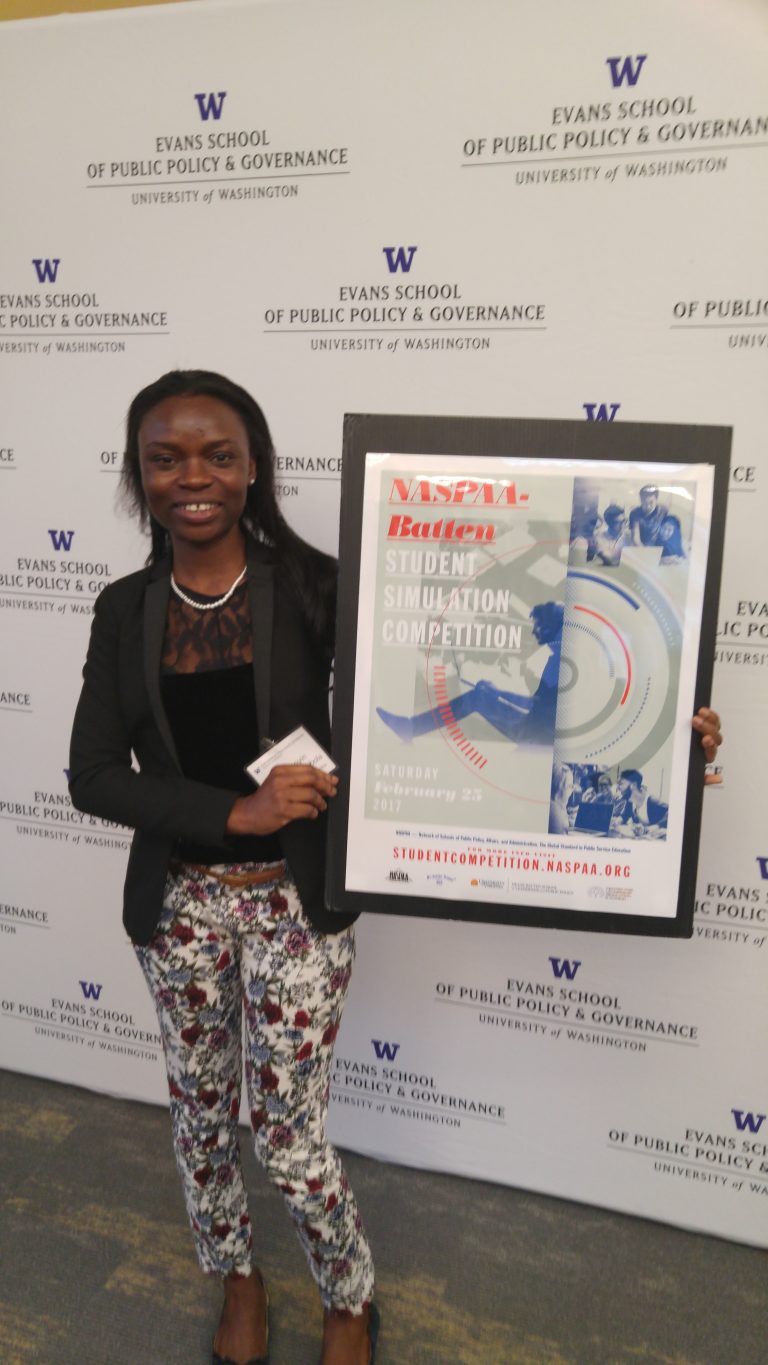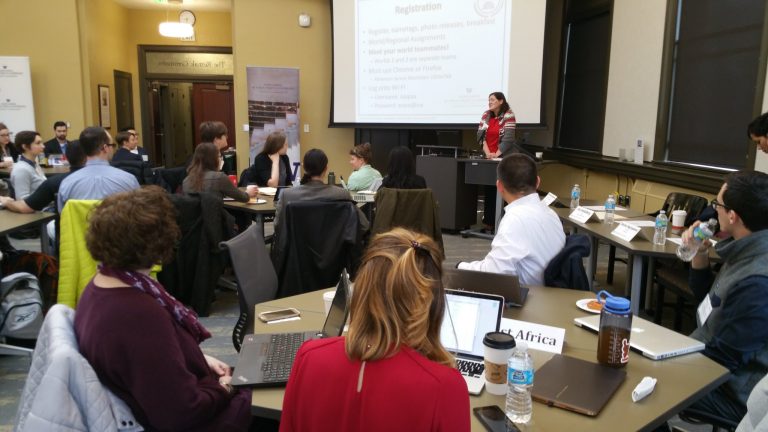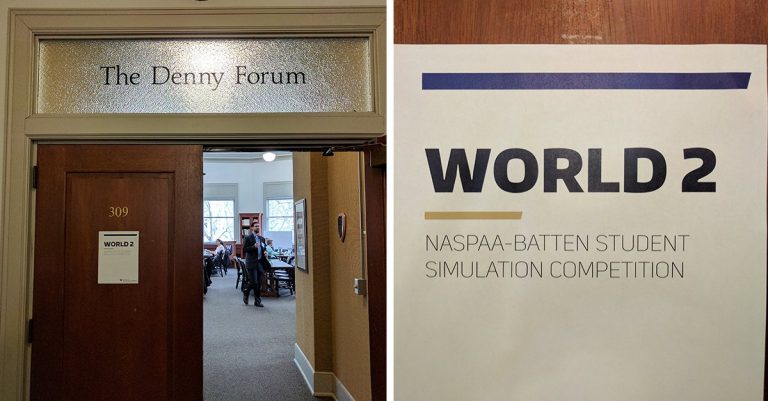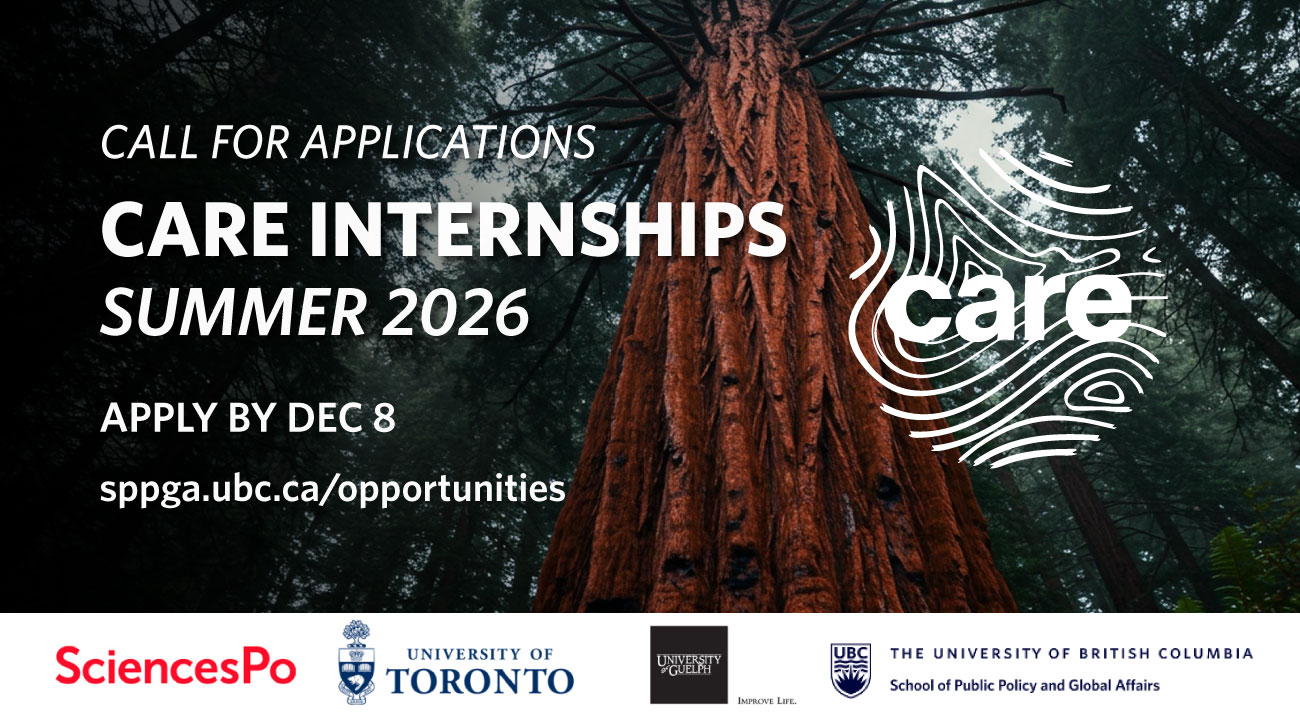During the weekend of February 27, 2017, UBC MPPGA students Angelo Wang, Laurélène Faye, and Toyin Christiana had the opportunity to participate in the NASPAA-Batten Simulation Competition on Food Security at the University of Washington in Seattle.
Learn more about the NASPAA-Batten Student Simulation Competition.


The NASPAA-Batten Simulation Competition took place in eight university locations (Maastricht, New York City, Washington D.C. area, Indianapolis, Bogotá, Tempe, Seattle, and Beijing) and involved the participation of nearly 400 graduate students in public policy and management from all around the world, setting out to compete in a one-day immersive computer simulation that challenged them to advance global food security. Students had the chance to mingle amongst each other as teams comprised of 16-20 students from a variety of schools, acting as members of staff of a fictional global non-governmental organization (NGO) committed to reduce global hunger in five world regions.


The simulation modelling and serious games for learning were the main ideas of this contest. We were assigned into roles as program officers to work with our counterparts in the regional office to decide on our program investment strategies with limited funding to improve the performance scores related to food security and poverty.
To me, the modelling format to inform policy making is very novel and cutting-edge. The contest provides an opportunity to learn more about quantitative approach and modelling for policy analysis.– Angelo Wang, MPPGA Student
The Simulation allowed the students to analyze data and the results of the computer simulation, make policy proposals, draft memos with recommendations, and present their strategy recommendations to teams of local site judges consisting of Professors and directors of various NGOs and institutions.
The simulation competition was a very valuable one. During the exercise, we assumed various roles and tackled food security challenges peculiar to various regions. I took on the role of a Regional Director, East Africa, during the first round of the competition and a Health Program Officer, East Africa, in the second round.
Particularly of note was the use of historical data trend in each region to decipher what intervention, amongst an array of others, should be selected to address a particular food security challenge, for instance malnutrition, and resuscitate the affected indicators as well as why the particular intervention should be funded in preference to another in the light of the estimated impacts.
The whole experience can be distilled to engaging evidence-based implementation, monitoring and evaluation of food security projects. Learning outcomes from our Policy Evaluation class were notably instrumental in applying systems thinking to navigating the various alternatives and recommending decisions to be taken. Solutions were presented to panel of judges.
It is our recommendation that we should be participate again next year.
– Toyin Christiana, MPPGA Student


Meeting different students and working together was for me the highlight of the weekend. The simulation was really intense and interesting. I would do it again!
– Laurélène Faye, MPPGA Student


